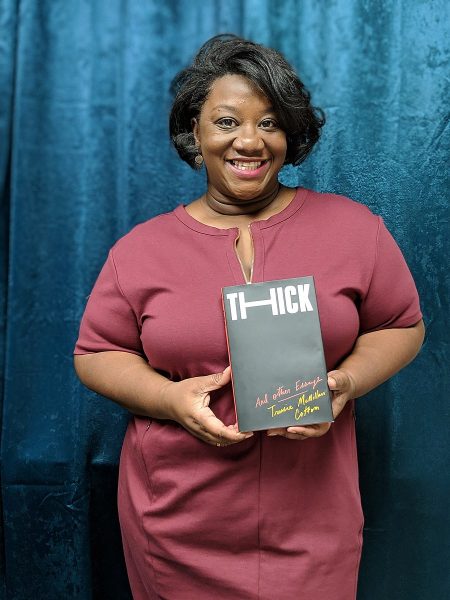
In addition to being a formidable sociologist of technology and education, Tressie McMillan Cottom is an upender extraordinaire of class, race, and gender hierarchies throughout academia and the broader social world. Her book, Thick, was recently nominated as a National Book Award Finalist. With over 100 thousand followers, she is the center of gravity of an ever-expanding Twitter community, and also writes an extremely influential blog. Moreover, she has created a new program of study–Digital Sociology–at Virginia Commonwealth University, where she teaches as an Associate Professor in the Sociology Department.
Even before making her mark in the sociology of higher education with her book, Lower ed: The troubling rise of for-profit colleges in the new economy, McMillan Cottom had become an expert at using social media to assert and establish her legitimacy among scholars. As a graduate student she posted a critical analysis of arguments made by a more senior scholar on her blog, and this earned her the support of a wide and diverse readership. She carries on this tradition of bringing voice and legitimacy to Black women in Thick. Through her essays, McMillan Cottom centers the Black women’s intellectual tradition and their experiences while asking readers to get comfortable with some of the most uncomfortable topics: misogynoir, child loss, sexual violence, to name a few. Her powerful blend of sociology and poignant, personal stories give voice and representation to so many, in a space where such stories so often go unheard.
- Tressie McMillan Cottom. 2018. Thick: And Other Essays. The New Press.
On Twitter, McMillan Cottom has also created a conversation space where thousands of followers feel supported as they navigate intersecting identities which are oftentimes complicated offline. This virtual space has also become a novel topic for scholarly research. Known as Black Cyberfeminism, this research explores how identities are created and interpreted in virtual places. It also critically examines the intersectional oppressions faced by Black women in virtual institutions. As Cottom argues, Black Cyberfeminist Theory provides a new lens for understanding and engaging in conversations around sociological phenomena.
- Tressie McMillan Cottom. 2016. “Black Cyberfeminism: Intersectionality, Institutions, and Digital Sociology.” Digital Sociologies eds. Jessie Daniels, Karen Gregory and Tressie McMillan Cottom. Bristol: Policy Press.
- Kishonna L. Gray. 2015. “Race, Gender, and Virtual Inequality: Exploring the Liberatory Potential of Black Cyberfeminist Theory.” Ch. 11 in Producing Theory in a Digital World 2.0, edited by Rebecca Ann Lind. NY: Peter Lang.

Comments